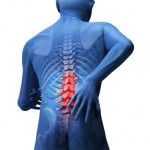Physiotherapy For Back Pain Relief During Pregnancy
Pregnancy and child birth are the most memorable and happiest days in any woman’s life. However, this experience carries a mixture of feelings of happiness, excitement, and stress of the pain during labour and afterwards. There may be a lot of complications involved with pregnancy depending on the physical fitness, age, and stature of the woman.
Back pain and pelvis pain are very common factors that many women suffer during pregnancy.When no medicines, surgery, or any alternative treatment work to provide help, then you should try physiotherapy for back pain relief during pregnancy, which has been proven to improve the situation.
Physiotherapy For Back Pain Relief During Pregnancy
Ever since the birth of her first child, Lily, 15 years ago, former Radio 2 presenter Emma Forbes has suffered back ache, although those two words barely do justice to the agony that has often left her bedbound, shedding tears of frustration, unable to walk or to rest, sleep or eat.
In her darkest moments, after surgery failed, she admits to wondering if she would ever know a life without pain.Just like 80 per cent of pregnant women, Emma first suffered the condition during pregnancy.
Known as postpartum back pain – and dubbed ‘baby back’ – the problem is due to hormones such as relaxin being released to soften the joints and tendons, particularly in the pelvis and lower back, preparing the body for labour.
In one fifth of cases, this develops into chronic (long-term) back pain, and numbers are spiralling as a result of increasing obesity rates in women, say experts. Although never overweight, Emma was one of the unlucky ones. ‘Before being pregnant, I’d never had back pain,’ she says. ‘It started in the base of my spine and travelled down one leg. ‘Everyone I spoke to seemed to have a remedy – try Pilates, try yoga, see a chiropractor. ‘If I lay down flat, I could relieve the pain, but when I stood up it returned. ‘It was worse when I was driving, or having to sit still or stand for any length of time. I thought it would disappear after I gave birth.’
Emma had a 38-hour labour with Lily and required an epidural. ‘I put on two-and-a-half stone in pregnancy, which is a lot for my size ten frame,’ she says. ‘Because I had an epidural, I couldn’t feel any pain, and I think I had extremely bad posture when I was giving birth.’ Hers was a classic case of baby back, according to orthopaedic specialist Dr John Outhwaite, of the Nuffield Orthopaedic Hospital.
He says: ‘It’s common in pregnant women, not simply because of the weight of the child, but also the fact that the mass inside the abdomen distorts the transverse abdominal muscle, which is the key muscle for switching on and off our core stability. ‘It is stretched and squashed in pregnancy and its movement and efficiency are disrupted when carrying a baby. If you have weak core muscles, you will get a bad back.’
Key blood supply is also affected by pregnancy. ‘Metabolically, the baby is very active, and a huge percentage of a woman’s blood supply is diverted to feed the child. ‘This creates a weakness in the back muscles because they are being starved of blood. ‘A prolonged birth can cause acute injury to the soft tissue in the lower spine, causing chronic pain.’
Emma says: ‘I struggled on, trying cranial massage, a chiropractor, acupuncture and massage, but nothing worked. ‘Then I became pregnant with Sam (now 13) and after his birth the pain became unbearable.’ The 46-year-old, who lives in London with banker husband Graham Clempson, 47, visited her GP, who referred her for a magnetic resonance imaging (MRI) scan showing the inside of the body.
‘I was told, to my horror, that I had two slipped discs,’ says Emma. The spine is made up of 24 bones called vertebrae stacked on top of each other. Discs are the protective, circular pads of gel-filled cartilage that act as cushions between the vertebrae. A slipped disc occurs when one ruptures and the gel inside leaks out. The damaged disc can put pressure on the whole spinal cord or on a single nerve fibre. This means a slipped disc can cause pain in the area of the protruding disc and in any part of the body that is controlled by the nerve the disc is pressing on.
In Emma’s case, the damage was in the lumber – or lower – spine.
‘The surgeon said I could hope it would go away but the only real option was surgery. I knew this would be debilitating, that I’d be flat on my back for a while. I said, “I just don’t have time!” His expression said it all. ‘I soldiered on but a few weeks later, in 1999, I was being driven down the King’s Road in London with my sister Sarah and I said, “Stop the car.” The pain was so unbelievable I was in tears. ‘I then knew I had to do something. I rang the Wellington Hospital in London and they rushed me in as an emergency patient and I had one-and-a-half hours of surgery. ‘When I came round I was euphoric – the pain had gone. I’d had 42 metal clips inserted in my spine, and I had to learn to walk again.’
Emma had a microdiscectomy, where the surgeon cuts away the bulging part of the disc via an inch-long incision in the back. This relieves the pressure on the nerves, alleviating pain. After five days in hospital, most patients are allowed home. However, recovery can take six weeks and some studies suggest that up to 25 per cent of patients will need further surgery for recurrent pain.
Emma’s initial recovery was a false dawn. ‘I carried on happily for a year – and then the pain came back with a vengeance. ‘I was mortified. I felt I couldn’t go through it again. It was ruining my life.’ Emma struggled on until 2009, when a physiotherapist, David Bolton, was recommended to her by a friend. Twice a week, for half-hour sessions, Emma’s physio manipulated her back and legs with gentle movements.
‘He was a last gasp for me, because otherwise I could have been facing surgery again. ‘Some people have this operation two or three times as the problem often recurs. ‘By the time I went to see David, I was in so much pain I could barely walk into his consulting room – I shuffled in sideways. ‘His approach was calming and he taught me how to let go of the fear of my pain.
‘I was walking around holding myself tensely upright, as if someone was about to punch me in the back. ‘I was over-protecting myself, and making things worse.’ Twice a week, for half-hour sessions, he manipulated her back and legs with gentle movements. Emma says: ‘He wasn’t pummelling me, rather gently moving me about, manipulating and rotating my spine. ‘Every day I had to do set exercises of twisting and stretching involving my spine, often lying down. ‘Within six months, I was pain-free.’
Emma has now been without back pain for two years, and David’s treatment has allowed her to begin exercising gently.
With the release of various different hormones in the body of the woman, she faces many challenges physically and emotionally during pregnancy. Post-partum back pain is something that can be a challenge that makes looking after herself and her baby more difficult. So, when nothing seems to work for back pain, physiotherapy sessions give comfort to the patient from back pain.
Getting good physiotherapy for back pain relief during pregnancy is one of the first steps towards becoming free of back pain during and after pregnancy so that a mother can enjoy the whole process. Several exercises should be customized according to the patient’s needs and the patient’s condition. These should be practiced regularly to help prevent the return of back pain.
A healthy diet, regular exercise, and not putting on extra weight is the key to a healthy and pain-free back during and after pregnancy. Some of the twists and stretches instructed by an expert physiotherapist will do the trick. Exercises can be increased after pregnancy after consulting with your physiotherapist.
Get more info about pregnancy and back pain relief in our free back pain book available by signing up on our website
You might also like:
Tags: Back Pain Relief And Pregnancy, Back Pain Relief During Pregnancy Exercises, Back Pain Relief Exercises, back pain while pregnant, pain relief, Physiotherapy For Back Pain Relief During Pregnancy, pregnancy















